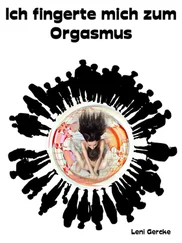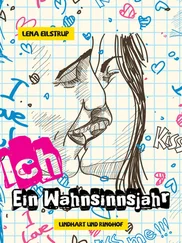Papa! Why does it have to be this way? Every time Petter begins to develop slightly friendlier feelings towards him, it turns out to be misguided. How is a man to honour such a notoriously foolish father? Who rushes off half-cocked, who lacks balance and all sense of proportion? As usual, Petter is left feeling bitterly disappointed at the end of an unnecessary detour by way of a father who can’t even help him with a simple letter in English, a language he is so proud of knowing. There is no one else on the Örlands who can help him. A couple of older men have been in America as carpenters, but their English is spoken and practical, and he doesn’t want to embarrass them by giving them a task they won’t be able to handle. He himself is childishly unwilling to admit that he doesn’t know English, and he lets several weeks go by while he goes around feeling ashamed of himself for various reasons before he does what he should have done in the first place—writes an appropriate letter and sends it to his contact at the U.S. Embassy and asks him to translate it.
By then he has much else to think about. Mona, whom he’s always considered to be healthier and to have a stronger constitution than he himself, has come down with rheumatoid arthritis and has been ordered to take medication, stay in bed, and, the worst part for her, have complete rest for four weeks. Again they have reason to be extremely grateful to Doctor Gyllen, who made the diagnosis, and to the local council, whose newly established homecare service makes it possible to get help with the milking and the two little girls.
Doctor Gyllen frightens Mona into realizing that unless they can drive her illness into remission, she will wind up a cripple. Mona has seen cases in her own village that make her listen, and she now lies wrapped up in bed, as protected from draughts as it is possible to be in the draughty parsonage, with woollen arm warmers drawn up over her elbows and wool on top of a flannel nightgown covering her body. Her joints are swollen and painful at this acute stage of the illness, but total rest will help the body to fight it.
Petter feels terrible guilt for having dragged his wife out to this icy lair, this abode of wind and weather, and possibly having destroyed her health for the rest of her life. Is it the cold that’s to blame? he wonders contritely.
Not necessarily, Doctor Gyllen thinks. It is hard to explain why a particular disease affects only some of the people in a population living under identical circumstances. It seems to be the case that there is more than one reason why disease breaks out. She is only speculating here, but in the course of her quite comprehensive practice in Leningrad she noticed that when women Mona’s age came down with acute rheumatoid arthritis it often happened some time after a completed pregnancy. Almost as if the body’s adjustment made it more susceptible to this kind of illness.
And, she adds, before he’s had time to ask, “A large percentage of this category regained full health under conditions I have prescribed for this patient.”
This is of the greatest interest to Mona, because she has seen her rheumatoid arthritis as an indictment of her failure to wear enough warm clothes. In fact, she has dressed warmly, and the doctor’s words are a considerable comfort. She means to follow doctor’s orders to the letter even though complete inaction is going to make her crazy. She is not allowed to do handwork or even strain her wrists for any extended time by holding a book or a newspaper.
Four weeks! It’s hard to imagine how she’ll be able to hold out for such a long time when there’s so much to do. They can’t hope to keep Sister Hanna for four weeks, and in any case she wants to take care of her cows and her children and her house herself—separate and churn butter, knit stockings, write letters, and go to the outhouse. Now she has to answer the call of nature in a potty chair in the bedroom, which others then have to carry out.
She listens to the radio for as long as she can stand the static. As often as he can, Petter comes in and tells her what he’s busy with, and when the mail comes she can read the papers if she’s careful turning the pages. The pastor is busy as a bee, for, in addition to all the duties of his office, many of the practical chores fall to him as well. Mona was so efficient that they were hardly noticeable before, but now he’s got more than he can handle. Sister Hanna has her hands full too, and he tries to help her as much as he can—fetches wood and water, builds fires in the tile stoves, and often goes with her to the cow barn to help with the mucking out and the feeding. In the evenings, they lie in the dark and talk. These conversations are her greatest comfort and the bridge that leads from one day to the next. His voice, his hand holding hers, his thumb massaging the inside of her wrist, the hope in his words.
Of course Sanna often sits on the edge of the bed or moves about the room and talks sensibly. She has started liking her little sister now that she knows her mother can’t devote herself to her. Sister Hanna places her at her mother’s breast when she’s hungry, but Mama can’t lift her or change her. It’s so cold on the floor that she mostly has to sit in her crib, where she would live like an animal in a cage if Sanna didn’t keep her company. As soon as she walks into the bedroom, Lillus gives a happy shout, and when she’s in the right mood she thinks everything Sanna comes up with is fun.
Sanna also talks to Sister Hanna, who goes quietly about her work in the kitchen. When she has time, she comes and talks to the pastor’s wife. About her duties, about what she’s to do and how, about where some things can be found and where others may be hiding. But also about many other things, about terrible diseases that have struck people on the Örlands, whole clusters of children left motherless, a helpless father left alone with his entire brood, his animals in the cow barn and no way to deal with it all. The need for help is inexhaustible, and still it was overwhelmingly difficult to get the local council to pass the proposal to create a home aide. Sister Hanna looks sad and bitter at the memory, and Sanna listens. “It’s awful when the people who have our fate in their hands have no feeling for the troubles of their fellow creatures.”
Mama and Sanna are all ears as Sister Hanna tells the story. Votes were taken again and again, and she names all those who voted no. She emphasizes that it was only when the organist became the new chairman that he managed to persuade his cohort to vote for the resolution and then cast the deciding vote himself. Mama and Sanna heave a sigh of relief and cheer, for the organist is their idol, and they can both bear witness to how badly Sister Hanna’s services are needed. The bedroom becomes a zone of warmth and mutual respect. Mona, who has always had difficulty accepting help, finds it a little easier when Sister Hanna tells her again and again how comfortable she is in the guest bedroom.
If only no wife and mother becomes acutely ill and dies! For the moment, everything is working nicely at the parsonage, but how will it be in future? Was he selfish and thoughtless, Petter wonders, when he applied for the post of pastor on the Örlands? If Mona can’t stand the climate and the cold, draughty parsonage, that puts his decision in a whole new light. Is it fair of him to insist on staying on if doing so puts his beloved wife’s health at risk? When he was in Borgå, the bishop was very friendly and understanding and implied that a priest of Petter’s calibre could make an important contribution in a significantly larger parish. At the time, of course, he said that his calling was to the Örlands, but if that calling means that he must sacrifice his wife’s health, then it’s time to reconsider.
Читать дальше












